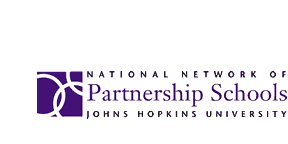Florence, South Carolina
Going Google: Chromebook Rollout
The school’s strategic plan included becoming a 1:1 Chromebook School in 2017-18. The Action Team for Partnerships (ATP) wrote a grant that brought the school funds to pay for Chromebooks. They worked to design an effective and equitable distribution of the new equipment. The Chromebook Rollout aimed to:
- Have 100% participation of students in the 1:1 initiative. Families had to sign release agreements, pay $30 user-fees, and pick up a Chromebook for their children to use at home and school.
- Answer parent questions and concerns regarding use and responsible care of Chromebooks.
- Efficiently distribute over 1,600 Chromebooks.
- Train teachers in best practices using Chromebooks.
After considerable planning, the ATP distributed about 1,000 Chromebooks in one evening. Stations were set up. Families who had paid for and signed forms to care for the equipment had a fast-lane to the library where Chromebooks were be distributed. Others moved from station to station to complete the steps for obtaining and using a Chromebook. Chromebook-use classes were conducted for families by district technology staff, followed by dinner.
Highway to Higher Education
Solving a problem starts by identifying the problem. At South Florence High School, the team saw that many freshmen who failed to be promoted to become sophomores were overage and were statistically likely to drop out of school. The high school wanted to help these freshmen believe in themselves and in their ability to finish high school and go on to higher education. The school’s Action Team for Partnerships (ATP) worked with administrators, teachers, and counselors to guide overage freshmen to earn eleven credits and qualify to rejoin their cohort for the junior year. They would, then, be eligible to graduate on time or close to on time. The school applied for state recognition of this innovative practice.
Teachers identified students in the rising freshman class who would turn sixteen before December of that school year. Administrators contacted the families of the students who were eligible to travel the Highway to Higher Education. They also met with these families and students to talk about the program and to address their questions. Those who took this opportunity were assigned two English classes, two math classes, a lab science, a social studies class, dual-credit business classes, and online electives. Students went on field trips, were provided tutors, regularly discussed their academic progress with counselors and administrators, and participated in a job interview day. Teachers and counselors mentored the students and maintained contact with the students’ parents. The families were invited to a dinner honoring the students at the close of the first quarter.
Highway to Higher Education is featured in Promising Partnership Practices 2017.

